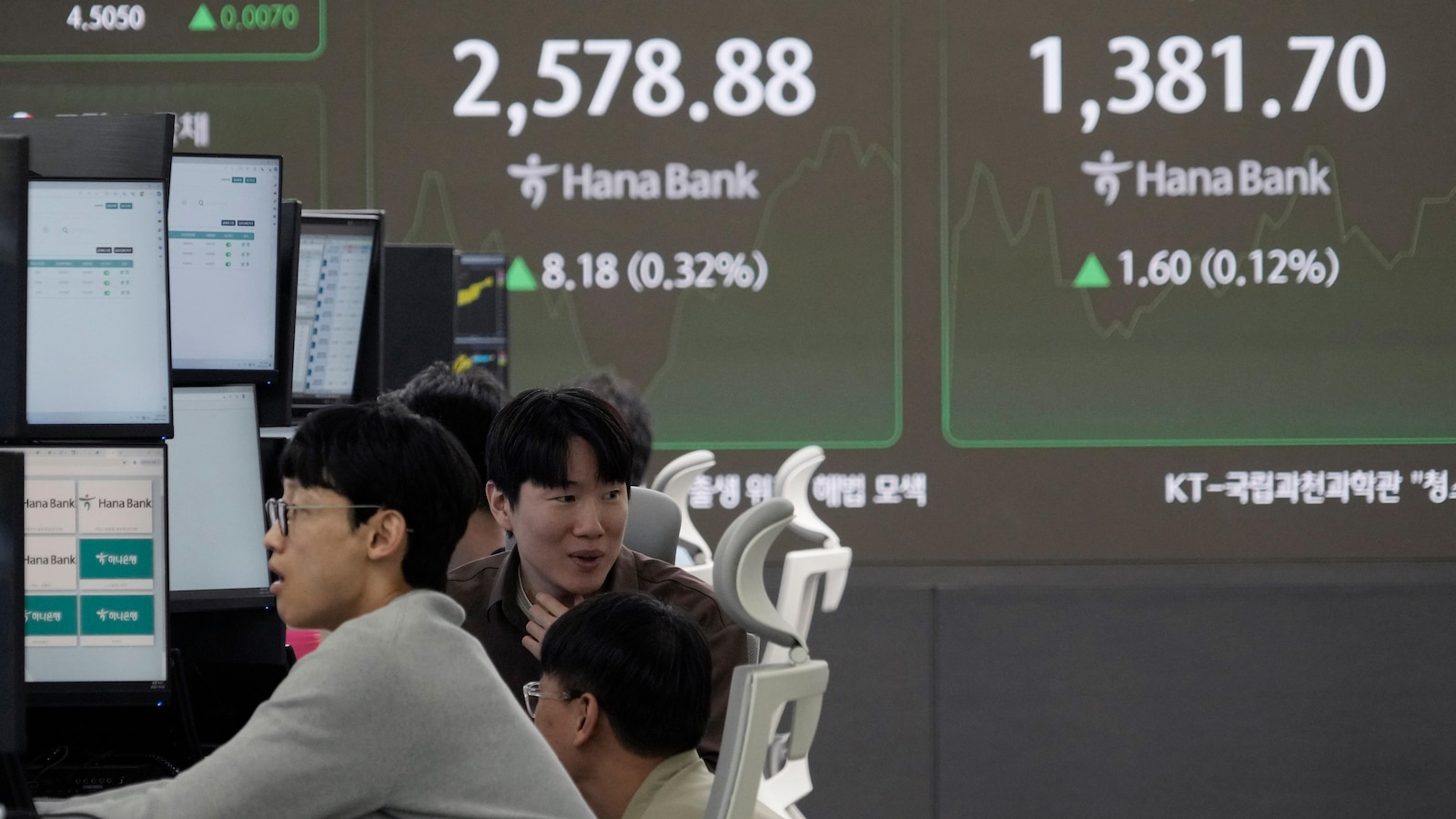Wall Street is on track to open with losses Wednesday as more high-profile companies roll out quarterly financial results.
Futures for the S&P 500 fell 0.2% before the opening bell, while futures for the Dow Jones Industrial Average gave up 0.5%.
McDonald’s tumbled 7% in extended hours after U.S. regulators reported that an E. coli outbreak linked to the fast food giant’s Quarter Pounder hamburgers sickened dozens of people across the U.S., including one who died. The U.S. Centers for Disease Control and Prevention said 49 people in 10 states reported eating at McDonald’s before falling ill and most mentioned eating Quarter Pounders.
Coca-Cola reported higher-than-expected revenue in the third quarter as higher prices offset lower sales volumes.
Boeing shares were unchanged ahead what could be one of the most consequential days in years for the troubled aerospace manufacturer. The company is expected to report a huge third-quarter loss, introduce its new CEO on his first earnings call, and learn if machinists will end a strike that has crippled the company’s aircraft production for more than a month. Boeing shares are down nearly 40% this year.
Starbucks skidded 4.7% overnight after the Seattle coffee chain’s fourth-quarter profits fell well short of Wall Street’s targets and pulled its 2025 guidance. Starbucks said its expanded fall product offerings — such as its Pumpkin Spice Latte — did not drive store visits, with same store sales declining 6% year-over-year. The results were preliminary, with final fourth-quarter results coming next week.
Shares of Spirit Airlines took off on reports that the budget airline and Frontier had revived merger talks. Its shares rose 25% before the bell.
Reporting later today are Coca-Cola and Tesla.
In Asia, Japan’s benchmark Nikkei 225 slipped 0.8% to close at 38,104.86 as the dollar rose against the Japanese yen.
Tokyo Metro Co.’s stock surged 45% during its trading debut on early Wednesday. The company raised 348.6 billion yen ($2.3 billion) in its initial public offering, making it Japan’s largest IPO since SoftBank Corp. went public in 2018.
Chinese markets rose for a second day after the central bank cut its one-year and five-year Loan Prime Rates on Monday. Hong Kong’s Hang Seng added 1.3% to 20,760.15, and the Shanghai Composite gained 0.5% to 3,302.80.
State media have reported that a state-backed think tank has proposed issuing 2 trillion yuan ($281 billion) in special government bonds to create a market stabilization fund aiming to further ease the hidden debt pressures and inject confidence into Chinese markets.
“Yet, despite the bold proposal, there’s a sense that Beijing remains in reactionary mode, playing catch-up rather than getting ahead of the game,” Stephen Innes, managing partner at SPI Asset Management, said in a commentary.
Australia’s S&P/ASX 200 edged 0.1% higher to 8,216.00. South Korea’s Kospi was 1.1% higher at 2,599.62.
Taiwan’s Taiex slipped 0.9%, while the Sensex in India gained 0.2%.
European markets were lower at midday, with Germany’s DAX and Britain’s FTSE 100 each falling 0.4% and the CAC 40 in Paris losing 0.8%.
U.S. stocks have slowed their record-breaking momentum this week under increasing pressure from rising Treasury yields.
The yield on the 10-year Treasury ticked up to 4.22% early Wednesday, well above the 4.08% level it was at on Friday. Higher yields for Treasurys can make investors less willing to pay high prices for stocks, which some analysts say are already over valued.
Treasury yields have been climbing following a raft of reports showing the U.S. economy remains stronger than expected. That’s good news for Wall Street, because it bolsters hopes that the economy can escape from the worst inflation in generations without the painful recession that many had worried was inevitable.
Traders are now largely expecting the Fed to cut its main interest rate by half a percentage point more through the end of the year, according to data from CME Group. A month ago, some of those same traders were betting on the federal funds rate ending the year as much as half a percentage point lower than that.
In other dealings early Wednesday, benchmark U.S. crude gave back a chunk of Tuesday’s gains, falling $1.43 to $70.31 a barrel. Brent crude, the international standard, also fell $1.43 to $74.61 a barrel.
The U.S. dollar rose to 152.79 Japanese yen from 151.08 yen. The euro fell to $1.0779 from $1.0800.

